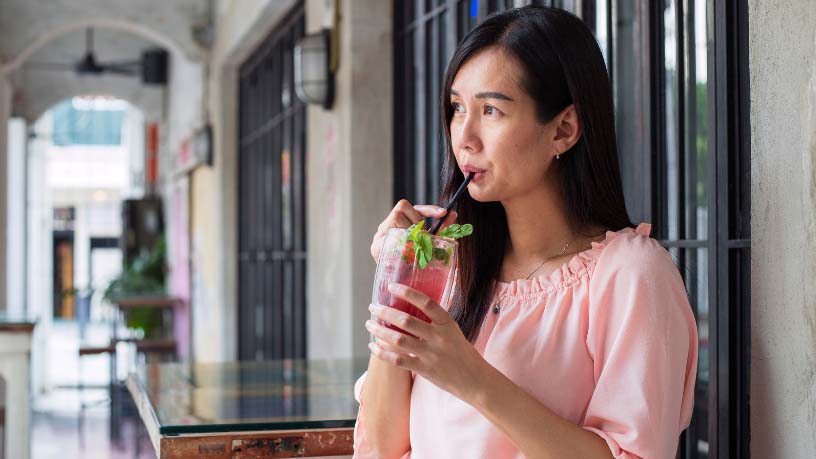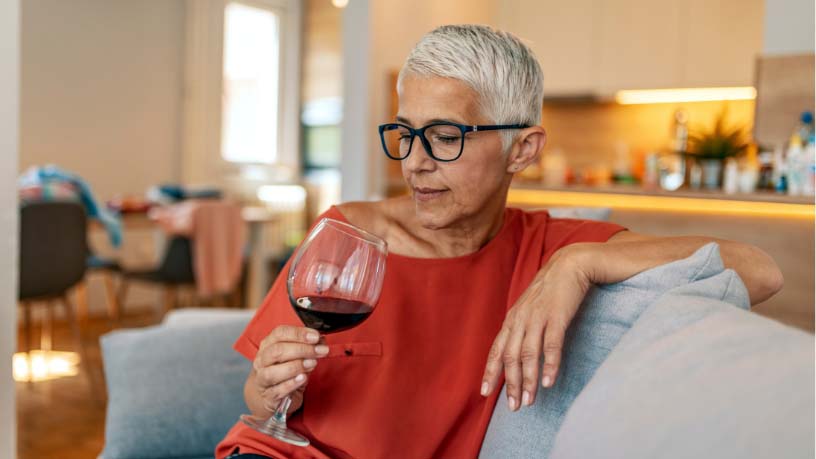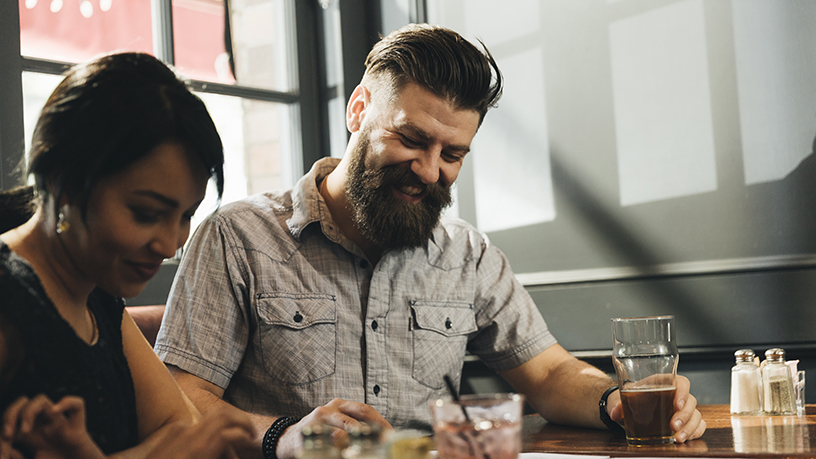On this page
Key takeaways
- There's a strong link between alcohol and mental health.
- The more a person drinks, the more likely they are to develop major depression.1
- People with depression and anxiety are more likely to use alcohol at harmful levels.2
What is the link between alcohol and mental health?
Alcohol and mental health are closely connected. Drinking might feel like it lifts your mood in the short term, but it can actually make anxiety and depression worse over time.
“The relationship between alcohol and depression and anxiety is bi-directional,” says Medical Director at Clean Slate Clinic, Dr Chris Davis. “This means that alcohol can exacerbate existing depression and anxiety, while depression and anxiety can lead to people wanting to drink alcohol.”
Alcohol can disrupt the balance of chemicals in the brain.
“Alcohol can increase the release of ‘happy hormones’, serotonin and dopamine, giving you a temporary buzz, and making you feel good,” says Chris. “However, when the alcohol wears off, these hormones are depleted, meaning you feel worse than you did before you had a drink. Often, people want another drink so they feel better, and the cycle begins.”
This same cycle can occur with alcohol and anxiety.
“If you’re stressed about an impending deadline, alcohol can dampen those stress hormones,” explains Chris.
“Initially, it might relax you. But the deadline is still there, and your brain still needs to be in fight or flight mode. So, in the background, your body is producing even more of those stress hormones to keep you alert.”
“When the alcohol wears off, often in the early hours of the morning, your body has a rebound stress hormone load. This can cause fitful sleep and make you feel more anxious.”
Why do people self-medicate?
“People who might be depressed or anxious might feel better in the short term when they’ve had a drink,” says Chris.
However, this feeling doesn’t last.
“Our brains have evolved to appreciate the short-term,” he explains. “When we’re in pain, we’ll do anything to take away that pain.”
“Alcohol can take away emotional pain quickly. Your brain connects these ‘positive’ effects with drinking alcohol and sees it as a reward. However, our brain isn’t as good at connecting the longer-term negative effects of alcohol with drinking because it’s not as immediate.”
Some people use alcohol as a crutch to help them sleep.
“Alcohol is a sedative and does knock people out,” says Chris. “However, it prevents you getting enough REM sleep. This means you don’t feel rested in the morning.”
“When people stop drinking, they often worry they won’t be able to go to sleep, but it usually means the quality of their sleep dramatically improves.”
How can you stop leaning on alcohol to cope with your mental health?
It’s important to understand that alcohol can make your mental health worse, not better.
“Keep a drink diary to track when you drink, and how you feel afterwards. This can make the links between drinking and your mood clear,” says Chris.
“You can also write a pros and cons list about how alcohol makes you feel in both the short term and long term. When you see the negative connection between drinking and your mental health, rather than the perceived benefits, it can motivate people to make a change in their behaviour.”
It’s important to put strategies in place so that when you feel depressed or anxious, you know there’s an alternative to having a drink.
“Having a plan can help,” says Chris. “That might be calling a friend or going for a walk. Knowing there’s an alternative to drinking can make a big difference.”
Safe, supported alcohol detox at home
Support
If you’re in need of urgent support, there is help available:
Lifeline provides 24/7 suicide prevention and crisis support. Call 13 11 14
Suicide Call Back Service offers free 24/7 counselling support if you are at risk of or affected by suicide. Call 1300 659 467
Beyond Blue offers mental health support. Call 1300 22 4636
Resources
Clean Slate Clinic offers a range of treatments for dependence on alcohol, stimulants, cannabis and other drugs.
Alcoholics Anonymous offers free recovery programs around Australia.

At Bupa, trust is everything
Our health and wellbeing information is regularly reviewed and maintained by a team of healthcare experts, to ensure its relevancy and accuracy. Everyone's health journey is unique and health outcomes vary from person to person.
This content is not a replacement for personalised and specific medical, healthcare, or other professional advice. If you have concerns about your health, see your doctor or other health professional.
1The Journal of Child Psychology and Psychiatry and Allied Disciplines (1999) Comorbidity. The Journal of Child Psychology and Psychiatry and Allied Disciplines
2Addiction (2021) Associations of common mental disorder with alcohol use in the adult general population: a systematic review and meta‐analysis. Addiction
You might also like
How alcohol affects your body
That extra glass of wine you had last night may have more of an impact on your health than you realise.
Grey area drinking: When that extra glass is more than a treat
A nightly glass or 2 of your favourite drop to unwind can become harmful if you don’t know the signs of dependence.
The benefits of going alcohol free for a month
We all know drinking alcohol can have some pretty serious consequences for our health, but what happens when we stop drinking? Even just for a month?
Alcohol Use Disorder: When and how to get help
Alcohol Use Disorder is problematic pattern of alcohol use.





